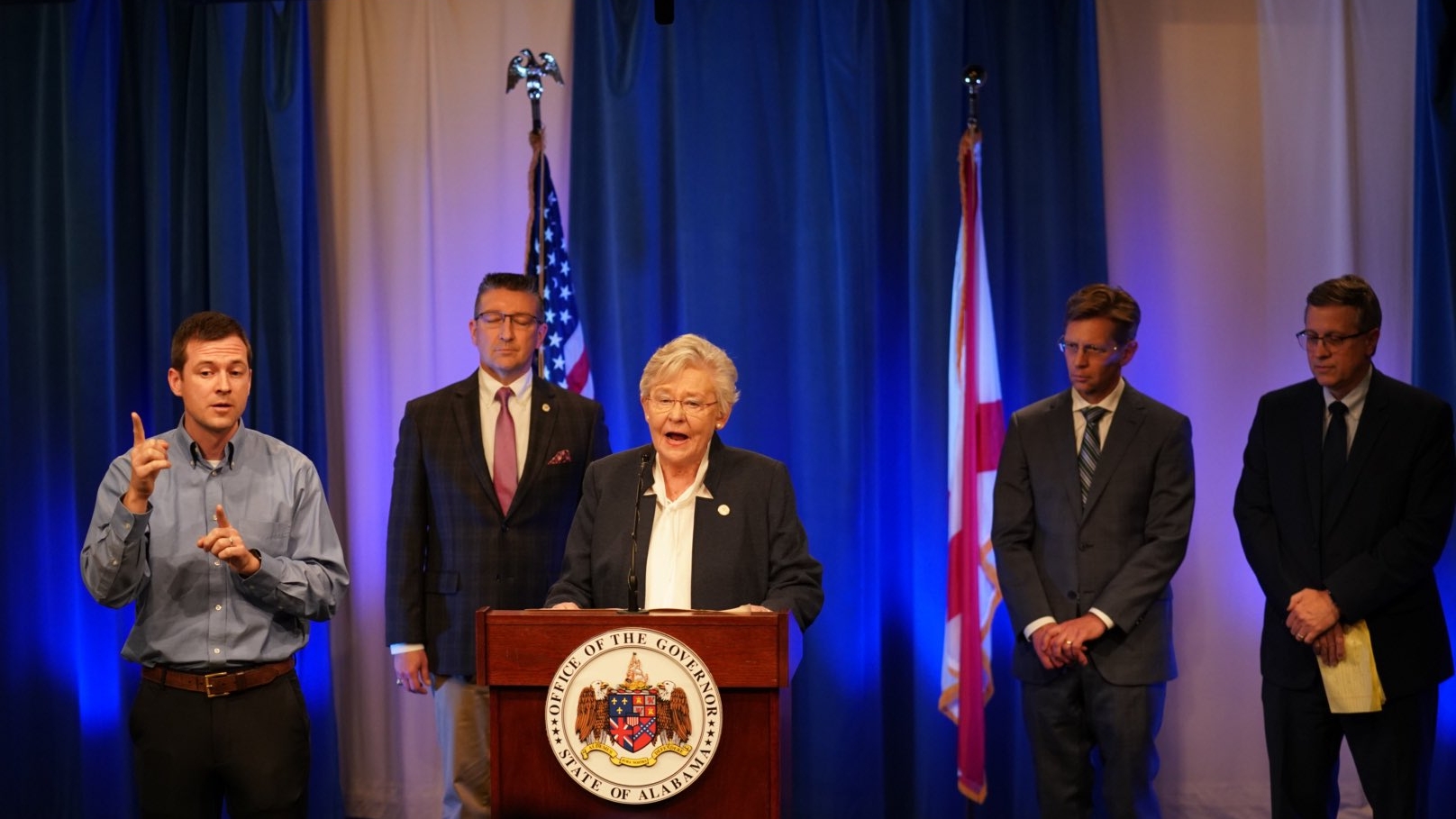Updated March 14 at 6:50 p.m. to reflect the latest changes in numbers. Future updates will be posted here.
Alabama Gov. Kay Ivey on Friday declared a state of emergency as two confirmed cases of the novel coronavirus, and three more preliminary cases, were announced throughout the day. By Friday night, a total of six cases have been confirmed.
Cases have been confirmed in Elmore, Jefferson, Limestone, Montgomery and Tuscaloosa counties. One more case is listed as “out of town.” In total, 28 patients have been tested at Alabama’s Bureau of Clinical Laboratories or the CDC.
In total, 74 people have been approved for testing, most of them at laboratories other than the BCL. On Saturday, a seventh case was confirmed in Baldwin County, according to Infirmary Health.
Ivey also announced that Alabama’s k-12 Public schools will close for two-and-a-half weeks, with the last day of school set for March 18.
“The safety and health of all our Alabamians is paramount,” Ivey said in the press conference. Ivey issued a state of emergency for Alabama, which she said “will strengthen our efforts and plans already in place.”
The state of emergency will free up state resources to respond to the crisis.
State health officer Dr. Scott Harris said during the press conference Friday that a person living in Jefferson County who had traveled internationally has also tested positive for the virus.
A civilian worker at Maxwell Air Force Base has tested positive for the novel coronavirus, becoming the state’s first confirmed case to date. That case was announced Friday morning.
Harris also said moments before the press conference he learned of “preliminary reports of three additional cases” but provided no further information on those cases. He did not know where the cases are located.
“Again, this is something that we have been expecting. We’ve known that we probably had disease transmission in our state,” Harris said. “But as we have ramped up our testing capacity, we are starting to find these cases, just like surrounding states have had.”
There’s been broad public concern over the slow start of testing for COVID-19 in Alabama.
Sen. Doug Jones, D-Alabama, expressed the same concern in a call with reporters earlier this week, and said problems exist in the global supply chain for the components used in the testing, and there simply aren’t enough tests to ensure those who need them get them.
Asked how confident the people of Alabama should be that the state has a handle on coronavirus, Ivey said, “I think the people of Alabama trust us when we say we are being very thorough.”
“This is an ever-changing situation. The virus is unknown, so we are ever-changing,” Ivey said.
Missed school days will not have to be made up, said Alabama School Superintendent Eric Mackey. Officials have a target date of April 6 to reopen schools, he said, though that date could be reassessed later if the pandemic worsens. The closure does not directly affect private schools, but could influence their decisions to close.
State officials are also working to provide meals to the homes of students who receive free and reduced lunches, Mackey said, although the details are being worked out.
Harris also said that the Alabama Department of Public Health will open call center at 8 a.m. for anyone uncertain whether they need a COVID-19 test. 1-888-264-2256.



















































